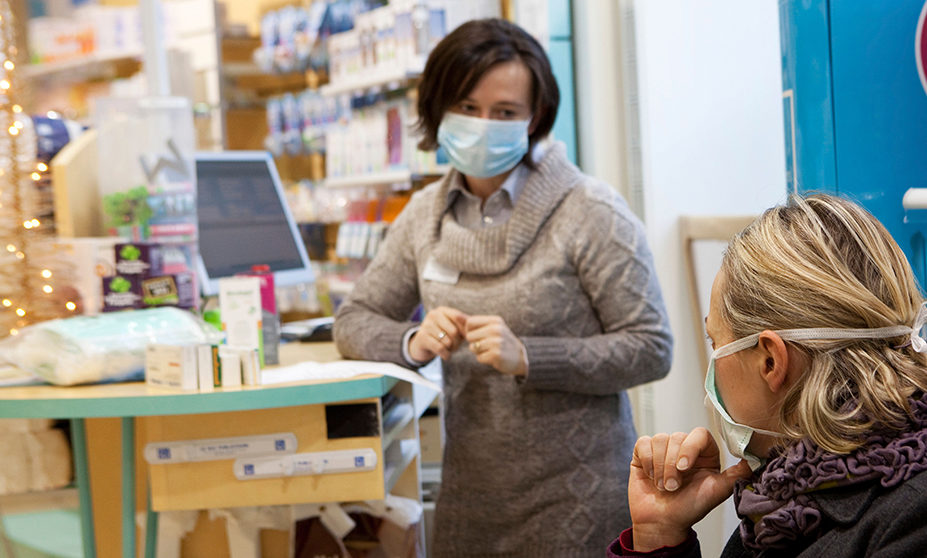
Alamy
The Scottish government is looking into ways of expanding the Pharmacy First service, including a ‘test and treat’ service for sore throats, the chief pharmaceutical officer for Scotland has told The Pharmaceutical Journal.
Alison Strath was speaking after the number of consultations under the service for minor ailments and common conditions hit 2 million.
She said that the government was “working closely with NHS 24 and health board partners” to consider “some of the areas that we could logically extend to next”.
In the interview, Strath said that one condition being considered as a potential next step is a service for sore throats, similar to that being rolled out in Wales, but added that “there’s quite a range of areas where we could do more in terms of respiratory problems, ear infections, etc”.
The Pharmaceutical Journal understands that meetings with medical leaders on a new respiratory pathway, involving community pharmacy, will begin soon.
“We’ve had more than 2 million consultations through Pharmacy First since it launched,” Strath said, adding that around 200,000 of these consultations have been for urinary tract infections (UTIs), impetigo and skin infections.
“[This equates to] time saved, potentially, from people having to go to the GP practice, which frees up GPs’ time to see people with greater needs.”
Read more: The full interview with Alison Strath
In the interview, Strath said that the pharmacy workforce was her “number one priority” and set out plans for a new cross-sector ‘pharmacy workforce forum’ to ensure better planning.
She said that she hoped the first meeting of the workforce would take place before Christmas 2021, adding: “I see the forum co-producing a vision for the pharmacy workforce, which sets out what good looks like: first of all in 12 months’ time, then, three years, five years and ten years.”
There have been concerns raised over the effect of the pharmacotherapy service in GP practices on the pharmacist workforce in community pharmacies. A statement from Community Pharmacy Scotland in August 2021 went so far as to call for a pause on recruitment into the service, citing an “unsustainable” drain in pharmacists moving away from community pharmacy.
Strath added that the forum needs to “think about what part technology may play, how artificial intelligence may come in, and some of the changes that are coming in terms of more disruptive medicines”.
Commenting on the expansion plans for Pharmacy First, a spokesperson from Community Pharmacy Scotland said there were “many options” that could be suitable, including respiratory diseases, skin, infections and allergy.
He said: “The service is under constant review, so there are also opportunities to further refine what we already have to improve access with a relatively simple implementation. This might include the review of PGD inclusion and exclusion criteria so that fewer people have to be referred on to another professional.”
Clare Morrison, RPS director for Scotland, said: “We are pleased to hear that the test and treat model is being explored for use in Scotland. We are very supportive of the Pharmacy First service in general, and of its expansion into additional areas to further increase patients’ access to advice and treatment from community pharmacies.”
What is Pharmacy First?
Pharmacy First launched across Scotland in July 2020, offering anyone living in Scotland the opportunity to visit a pharmacist as their first port of call for all minor illnesses, such as UTIs, impetigo and acne. It includes assessment, referral, or treatment and has been described as “the ART of pharmacy“.
In September 2020, an extended version, Pharmacy First Plus, was launched with the aim of embedding pharmacist independent prescribing into everyday practice. Pharmacy First Plus allows pharmacist independent prescribers to manage treatment of patients with common clinical conditions that may otherwise have needed referral to another healthcare provider, including allergies and eye infections.


